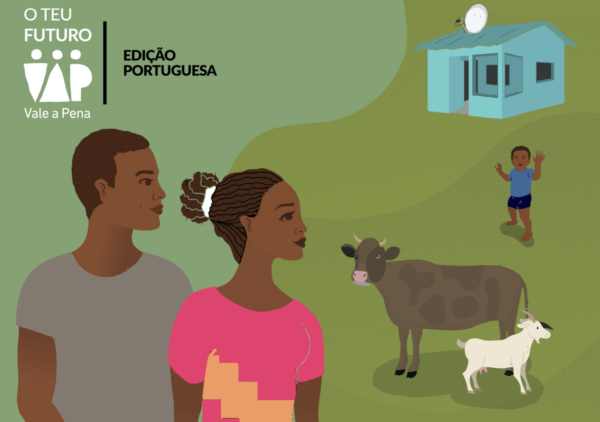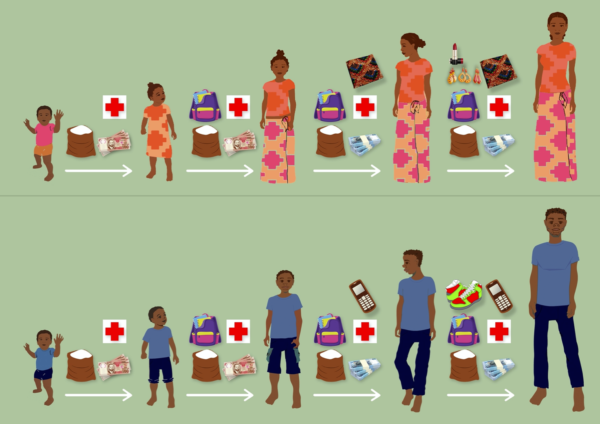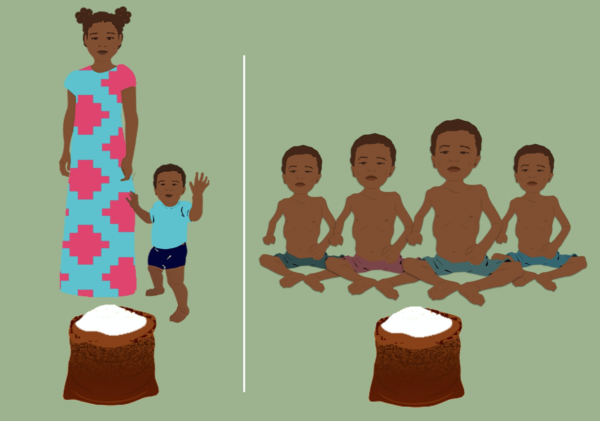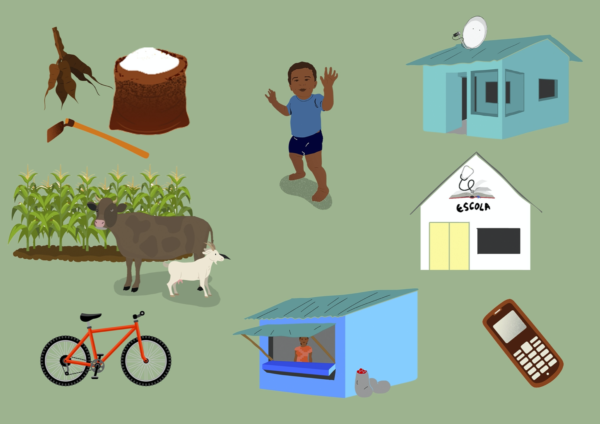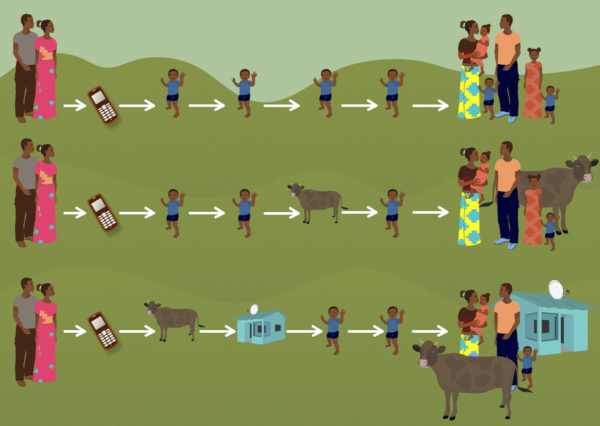By Shazia Jodá, Communications Assistant, PSI Mozambique
Vale a Pena – a UK Aid-funded and PSI Mozambique-powered youth contraceptive project – works with community health workers, commonly known as promoters in Mozambique, to provide door-to-door sexual and reproductive health (SRH) services.
Which is why VAP promoters first noticed married girls’ interest in contraception – with a caveat: girls needed their husband’s permission prior to selecting a method.
But with myths and misperceptions abound, husbands often don´t give promoters permission to speak with wives directly.
To serve girls with contraceptive counseling, we needed a solution to reach not only girls, but influence husbands – too. PSI’s experience reaching young couples in Ethiopia offered a ripe base by which we in Mozambique could build from in designing and delivering a youth-responsive contraceptive program for the same target demographic, albeit within a new context.
A SMART START
In Mozambique, we needed a tool that would explain the importance of planning when and how many children couples wanted to have in a way that resonated with girls and their husbands.
So, we took to Smart Start.
Developed by PSI Ethiopia’s flagship adolescent sexual and reproductive health (ASRH) project Adolescents 360 (A360), Smart Start equips Ethiopia’s health extension workers with a holistic tool that supports the health and futures of married adolescent girls aged 15-19 in the country’s hardest to reach rural regions. Smart Start facilitates conversations with girls and husbands about the relationship between resources and raising a healthy family, while positioning contraception as a key asset for achieving their goals.
In January 2020, we adapted Smart Start’s “Goal Card” and began testing our Your Future tool – an adapted version of Smart Start´s flipbook used by promoters – in northeastern Mozambique’s Nampula to understand what girls and their influencers prioritized to achieve secure and stable futures.
HOW VAP’s “YOUR FUTURE” WORKS
Husbands are invited to participate in a session with a promoter; he may choose to come alone or bring his wife. Promoters engage participants in a conversation about their homes and dreams – supporting them to identify the resources they’ll need to achieve their plans.
Saving resources and planning to have a family when couples are ready are explained as a core factor to get ahead in life – to have a prosperous and stable future and raise healthy children. The assumption is that husbands will always want to provide for their families but also reach their personal goals – be it to buy a phone, breed cattle, build a house or even buy a car. By leading with goals, we can frame the contraceptive conversation in support of couples’ finding a way to reach their life dreams.
Stage 1: MOBILIZATION
Promoters begin sessions with a conversation around how to save to achieve their goals. Husbands learn that they can save money to achieve their goals if they reduce their current costs and invest in other sources of income. Here, the call to action is to save money by reducing expenses and increasing profit, by planning when to have a family.
Stage 2: AWARENESS
Promoters explain that if they delay first birth and/or space between children they can save the resources they need to achieve their goals.
Stage 3: SERVICE DELIVERY
Promoters support husbands to then engage their wives in conversation around contraception, and – if the wives choose – encourage them to talk to a nurse and take up a method, if they desire. At every step, contraception is presented as a tool in service of couples’ self-defined goals.
LEARNINGS FROM ADAPTING SMART START IN MOZAMBIQUE
#1: Context matters
Material should reflect the context in which girls live. For example, we adapted the Your Future flipbook used by promoters to show representative imagery. We changed images of the Ethiopian ox to a Mozambican goat and adapted hairstyles to make the flipbook’s characters look like the couples we serve. In addressing the financial planning component of the flipbook, it was also important to contextualize what rural Mozambicans would spend money on; thus, the images on the goal cards were updated to reflect what consumers spend “disposable” money: from capulanas (traditional Mozambican garb) to beer and cosmetics.
#2: Less is more
The messages conveyed should be straight to the point. As we translated the content from Smart Start’s Amharic to VAP’s Portuguese, we simplified the messaging, as well as the calculations, to make it more digestible for promoters to use and couples to understand.
OUR TAKEAWAY
Sometimes it is not about reinventing the wheel – but about building from evidence-based interventions that offer a strong start to serving our target consumers.
It is important to keep track of how projects are being received by the communities in which they are being implemented. These projects have the power to shape the community, simultaneously, the insights retrieved from the communities drive the project in the direction that is most suitable for them. It is paramount, therefore, that projects can adapt in order to continuously support communities – and ultimately girls – through their health journeys.
“Yes, yes, yes!” said her husband.
In Mecubúri – a district in Nampula province – the VAP team met with a young wife whose husband agreed to join the session, after much effort.
At first, the husband looked angry at the intrusion into his house and sat facing almost away from the promoter, not looking at the images in the discussion aide. However, once the promoter asked about his personal goals, he became much more engaged and began to actively participate – smiling, laughing, and asking lots of questions.
When time came for the promoter to ask if they would like to speak with someone about planning their family, he didn’t even let her finish asking the question before he said, “Yes, yes, yes!” After the session, we found out that the wife was already using a contraceptive self-injectable.
This piece is a part of Adolescents 360 (A360)’s replication series on the UK Aid-funded Vale-a-Pena project. With and for young people, Vale-a-Pena is proving the power in applying A360’s youth-powered approach to determine what it takes to enact effective, resonant and ultimately lasting adolescent and youth sexual and reproductive health (AYSRH) behavior change in Mozambique – and beyond.
Learn more about how Mozambique’s Vale-a-Pena intervention is applying the A360 Blueprint for AYSRH Change to reimagine how young Mozambicans access modern contraception, today.


